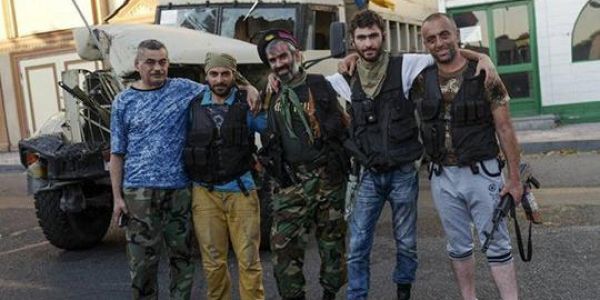Why was a discriminatory approach to “Sasna Tsrer” matter?

In the history of 28-year-old independent Armenia, 11 amnesties were used in 1992, 1995, 1997, 1998, 2001, 2006, 2009, 2011, 2013, and 2018. In addition, after a month the amnesty was announced on July 5, 1995, on the occasion of the adoption of the Constitution of the Republic of Armenia, another amnesty was announced, as the NA decision “to declare amnesty on the adoption of the Constitution” changed as a result of which the amnesty was also extended to Article 185 of the RA Criminal Code, (intentional destruction or damage to another’s property, which has caused significant damage) on the second and third parts.
On October 31 last year, then acting Minister of Justice Artak Zeynalyan at the special session of Parliament presented the draft law on Amnesty and Amendments to the Criminal Code, held on the occasion of the 2800th anniversary of the foundation of Yerevan and the 100th anniversary of the First Republic, stating that it would be spread over 6500 people and would be a large amnesty.
The name of the group “Sasna Tsrer” was also included in the list to be pardoned. However, they would only be released from criminal prosecution when the victim side did not object. The victims’ opinions had never been considered during the ten amnesties declared before.
By the way, the Chief of Police of Armenia, then Deputy Chief of Police of Yerevan, Valery Osipyan already objected to amnesty, which means that “Sasna Tsrer” will not make use of the pardon.
“In this particular case, I do not understand the logic. Since the first day I have kept saying that this is a very discriminatory amnesty. The discriminatory attitude towards those who tried to rebel is not absolutely acceptable to me,”says Nina Karapetyants, the head of “Helsinki Association” NGO.
The defense lawyer in the case of “Sasna Tsrer”, Arayik Papikyan says that the pardon is sometimes granted for a specific purpose, meaning that there is no need to look for a jurisprudence in itself; it is also a political decision. The advocate emphasizes that as the process showed, police officers are only against the application of the pardon in this case, while others do not object.
“The chief of the police was one of the representatives of the state’s supreme power to object. It was unclear that the state, the supreme power, on the one hand, announces about the initiation of a process of reconciliation in the society, on the other hand, another representative of that power objects to it. This is the policy of today’s state supreme power. The right hand does not know what his the hand is doing, “says Arayik Papikyan.
The advocate believes that it is absurd in the legal sense to give such a regulation because, because it has not asked anyone’s opinion when applying amnesty during the previous years. “Amnesty was applied on March 1 cases. We had 10 victims, two of them were policemen, hundreds of victims, people subjected to physical violence, and many police officers were among the victims. Neither the Chief of Police nor other people did not object, but there was no norm or provision on asking their opinion in the amnesty decision.”
Instead, another defense lawyer in the case, Ara Gharagyozyan underlines that there were cases when victims were against yet the pardon was granted.
“I’m upset that Artak Zeynalyan, as a human rights defender, always raised the issue of the certainty of the law, fighting against discrimination, but now this decision in essenceis a discrimination. Why should not everyone be equal before the law? I find this to be an anti-constitutional norm, and that everyone must be equal before the law. If all are victims, they should be treated equally; the “Sasna Tsrer” should not be separated, and other victims be ignored,” says the lawyer.
The defense lawyer in the “Sasna Tsrer” case, Arayik Papikyan knows well why such amnesty was applied: it was because elections were anticipated in the near future.
“The authorities tried to provide a relative tranquility in the public domain as much as possible. They were not only able to get enough votes, but in the future, the tension spots that could have hindered or affected the elections, were no longer essential to the authorities. In this regard, I think the authorities have made a serious and fatal mistake in their calculations. Their own calculations will have very serious consequences for themselves,” concludes Arayik Papikyan.
Leave a Reply